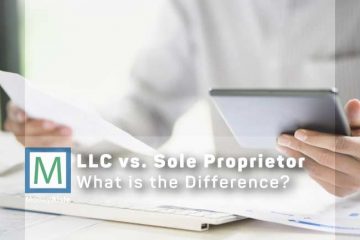Here we will discuss what is an LLC license, and how it can serve as a business structure. As you know, a limited liability company is a business structure that helps provide liability protection to your business, we’ll discover other benefits of an LLC license such as tax savings, the flexibility of business operations, and more.
Limited Liability Company Definition: An LLC is a business structure in which its owners are not personally liable for the company’s debts or liabilities i.e. the liability is limited.
How do you obtain an LLC license? The process of obtaining an LLC license varies depending on what state the LLC is located in. Generally, you must file Articles of Organization with the Secretary of State’s office and pay a filing fee.
What is a Limited Liability Company?
The limited liability company, or LLC, is a business structure that’s popular for a reason: it protects the company’s owners from being held personally liable for the company’s debts and legal obligations.
Not only that, but an LLC also offers the benefit of not having to pay taxes as a separate entity.
How do you obtain an LLC license?
The process of obtaining an LLC license varies depending on what state the LLC is located in. Generally, you must file Articles of Organization with the Secretary of State’s office and pay a filing fee.
Then, you may also need to register your business with your local government in order to obtain a business license or permits that are necessary for the type of business you’re operating.
Formation of an LLC
The formation of an LLC is an important decision for any business, as it helps protect the owners from personal liability. So if you’re looking for a way to protect your personal assets while still taking advantage of all the benefits that come with being a business owner, an LLC might be your best option.
A limited liability company is considered it’s own distinct, which means the company is able to do a number of things in its own name, such as:
- Own Property
- Enter into contracts
- Open bank accounts
- Sue and be sued
The LLC structure also offers the benefit of pass-through taxation, meaning that all profits or losses are “passed through” to the owners and reported on their individual tax returns.
LLC license Application
Once you’ve decided to set up an LLC, it’s time to file your Articles of Organization. This document is what officially creates the LLC and must be filed with the state where you plan to operate your business.
Depending on what type of business you’re running, you may also need to obtain additional licenses or permits in order for your business to operate legally. There are the following Steps for the Application for LLC License.
- Choose a name
- File the Articles of Organization
- Obtain an EIN
- Create an operating Agreement
- Comply with Tax requirements
- Maintain Records
For details, please read our article on how to start an LLC in your state.
Do you need a License for an LLC?
Yes, in most cases you will need to obtain a license or permit in order to legally operate an LLC. It is important to research what type of licenses and permits may be required for your specific type of business.
Additionally, you should contact your local government office to inquire about what requirements they have for businesses operating within their city or county.
Once you have obtained the necessary licenses and permits, your business will be able to operate legally as an LLC. That way, you can enjoy all the benefits that come with this structure, such as limited personal liability and pass-through taxation.
The Bottom Line
In conclusion, setting up an LLC in these easy steps can help protect your business and maximize the tax benefits available to you. With an LLC, you can enjoy all the advantages that come with being a part of this distinct legal entity. LLCs can come in a number of different variations, including:
- Single-member LLCs
- Multiple-member LLCs
- Manager-managed LLCs
- Member-managed LLCs
It’s important to do your research and make sure that you are aware of what type of LLC license is required in your specific state before filing your Articles of Organization.
Frequently Asked Questions (FAQs)
How to get an LLC license?
In order to obtain an LLC license, you must first file your Articles of Organization with the Secretary of State’s office and pay the applicable filing fee. Depending on what type of business you are running, you may also need to register with your local government in order to obtain any necessary licenses or permits.
What is the cost of forming an LLC?
The cost of forming an LLC varies depending on what state you are in and what type of business you are running. Generally, there is a filing fee that must be paid to the Secretary of State’s office when registering your LLC. Additionally, some states may charge additional fees for certain types of businesses or for late filings.

Murphy Brad, is a legal content writer with expertise in environmental law, criminal law, and business associations. She holds a Juris Doctorate from William & Mary Law School and is licensed to practice in Tennessee. Murphy has taught legal research, writing, and citations to law students and has contributed to the Environmental Law & Policy Review. With a background in philosophy and political science, Murphy brings a well-rounded perspective to her legal writing projects.





